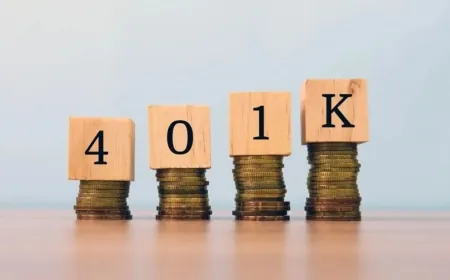Why Americans Are Upset About Inflation Despite a Strong Economy
Studies Reveal Deep-Seated Concerns Over Inflation's Impact on Living Standards

Americans have a deep-seated dislike for inflation, which significantly affects their views on the economy and personal finances. Even if the Federal Reserve achieves its 2% inflation target, this sentiment is unlikely to change for most people. Ideally, many Americans would prefer no inflation at all.
These insights come from two recent studies examining Americans' attitudes towards inflation, whether these views can shift, and what policymakers should consider.
The main complaint about inflation is its impact on living standards, forcing people to buy less or opt for lower-quality goods. According to Stefanie Stantcheva, a Harvard University professor and author of one of the studies, understanding these feelings is crucial because people suffer and experience significant stress due to inflation.
A recent Gallup poll highlighted that a record number of Americans now see inflation as their top financial concern. This perception persists despite strong job growth since early 2021 and an unemployment rate below 4% for 27 consecutive months.
Persistent Perceptions
The dislike for inflation today is as strong as it was nearly 30 years ago. Economist Robert Shiller's 1996 research explored why consumers detest inflation, and Stantcheva's recent study echoes those findings.
Three-quarters of respondents in Stantcheva's study believe inflation reduces their purchasing power, similar to the 77% who felt this way in Shiller's study. Additionally, 80% think prices are rising faster than wages, even though wage growth has surpassed inflation since February 2020.
Americans also reject any potential benefits of inflation, with 70% in Stantcheva's study agreeing that "inflation indicates a poor state of the economy," mirroring Shiller's earlier results. Stantcheva noted that these core beliefs have remained consistent since the mid-1990s, suggesting they are deeply ingrained and not easily influenced by current events.
Ideal Inflation Rate
A second study revealed a significant gap between the inflation rate Americans prefer and the Federal Reserve's target. On average, Americans favor a 0.20% annual inflation rate, far below the Fed's 2% goal and current inflation of 3.4%.
Raphael Schoenle, an economics professor at Brandeis University and co-author of the study, emphasized this disparity, noting that few people support the Fed's target. The study found that demographics and socioeconomic factors are the strongest predictors of preferred inflation rates. Older individuals and wage earners generally prefer lower inflation, while those with more assets tend to favor slightly higher inflation.
The researchers tested how economic reasoning influences these preferences. Participants were exposed to one of five economic theories about inflation—two advocating for higher inflation and three for lower inflation. When surveyed again, only the theory that wages don't keep pace with inflation significantly impacted their preferences, lowering their desired inflation rate by 1 percentage point.
Schoenle suggested that to gain public support for higher inflation, concerns about wage erosion must be addressed.
Aligning Public and Policy Perspectives
The gap between the public's acceptable inflation rate and the Federal Reserve's target complicates efforts to manage public perception. While the 2% target is standard among central banks, both studies indicate that policymakers should consider consumer preferences.
Schoenle pointed out that economics is an evolving field, and there is no single theory dictating an ideal target. Understanding public preferences is vital because people experience inflation differently based on their income levels and locations, which influences their consumption patterns and financing methods. Standard measures of average inflation might not fully capture these variations, highlighting the importance of aligning economic policies with the public's lived experiences.
Also Read: Bank of America Strikes $2.9 Billion Deal with WaFd for Multi-Family Loan Portfolio
































































